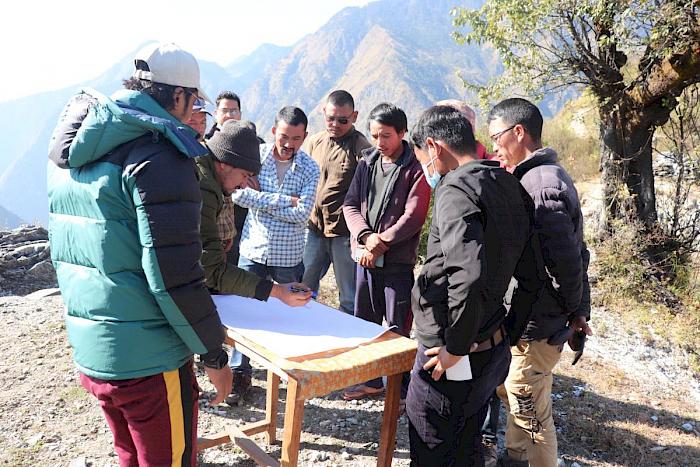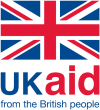
Anastasiya Timoshyna
Director - Europe
Reflecting on the global pandemic and the impacts of climate change, World Health Day 2022 focuses on keeping humans and the planet healthy. To celebrate this, TRAFFIC showcases a Jatamansi plant project that can act as a blueprint for sustainable, climate-resilient development, helping keep local wild harvesters and ecosystems healthy.
Wild plants provide an indispensable resource for human and environmental health but are under threat. Over 26,000 species from every corner of the globe are used for medicinal and aromatic purposes. They can be found in everyday supermarket products like teas and beauty products like shampoos, but out of those assessed, one in ten species are threatened with extinction in the wild.
Many plant species are harvested from the wild by low-income local communities. Without well managed, sustainable wild harvesting, the reliability of these species’ harvests and the communities that depend on them may suffer. Communities may even be displaced due to the impacts of climate change on crops for food, medicines and income. One prime example is the communities that wild-harvest Jatamansi.”
With an aromatic amber-coloured essential oil, Jatamansi or Nard/Spikenard Nardostachys grandiflora syn. Jatamansi, grown in the Himalayas, has been used in religious ceremonies, perfume, and traditional medicines for thousands of years. Nowadays, between 100-500 tonnes of Jatamansi rhizomes are internationally traded annually for medicinal and cosmetic uses.
Wild-harvested medicinal and aromatic plants underpin Nepal’s traditional medicine systems and provide a critical source of revenue for over 300,000 Nepalese low-income rural households. The Jatamansi harvest alone provides at least 15,000 people with about 25% of their annual income.
In recent decades, habitat loss and overharvesting drove a decline in Jatamansi and caused concern for the wider ecosystem integrity. As a result, Jatamansi was included in CITES[i] Appendix II and assessed as Critically Endangered on the IUCN Red List[ii].
But that does not mean this vital source of income and the traditional harvesting practice has to cease.
Our holistic conservation approach delivers positive outcomes for Nepal’s Jatamansi numbers in an environment that are critical habitats for rare and endangered flora and fauna and recognised as climate change sensitive in IPCC’s Climate Impacts, Adaptation and Vulnerability report. It’s about getting the balance right. The harvest of particular flora is also essential for local economies, so TRAFFIC worked closely with the Nepalese government to reformulate their 2017 CITES Act that prohibited the trade in all CITES-listed species, including Jatamansi, and impacts the incomes for wild-harvest-dependant households.

Picture courtesy of ANSAB
Between 2018 and 2021, TRAFFIC and ANSAB worked with collaborators[iii], the government of Nepal, and community forest user groups (CFUGs) through the Succeeding with CITES Sustainable and equitable Jatamansi trade from Nepal project.
By introducing the FairWild sustainability framework for the collection and trade in wild-collected plants, we have developed a system and demonstrated an improved management of non-timber forest products [NTFPs] in two biodiversity-rich mountain districts of Nepal.”
Puspa Ghimire, ANSAB’s Programs Director and Project Manager
Over 10,000 ha of forest and meadows in the Mugu and Jumla districts of Nepal were brought under improved management through the project, benefitting over 2,000 harvesters, 44% of whom were women. A Nepali enterprise, Himalayan Bio Trade Ltd., successfully reached the performance standard for Year 1 of FairWild certification, and can now offer certified Jatamansi and other ingredients to the global market.
“Before this project, we [did not] know the good collection methods of Jatamansi and other NTFPs,” said Ms Shreedevi Rawat, Jatamansi Harvester, Baghjale CFUG. “Besides sustainable harvesting, we have gained knowledge on FairWild standards, Social responsibility, Fair Trade, and Fair price … we also hope that [the project] will continue to work in such remote areas and provide technical knowledge on sustainable harvesting and good collection practices of the Jatamansi and other NTFPs/MAPs [Medicinal Aromatic Plants] so that all the community people will be benefited.”
Mr Ramesh Basnet, Scientific Officer, Department of Plant Resources Office – Jumla, said, “There’s scope to expand FairWild certification for many wild species other than Jatamansi. The government is also working in such areas, and we all are ready to contribute proactively from our inner hearts. Nepal’s community forestry provides an exemplary model that can be replicated around the world.”
Worldwide demand for wild plant products continued to increase in 2020-21, as herbal medicinal products were used to prevent and treat COVID-19. With growing demand, people (including overseas and urban migrant returnees) turned to wild harvesting Jatamansi as an alternative source of income during high unemployment[iv].
Expanding on the successes of the blueprint pilot project, TRAFFIC has created a continuation project: Himalayan plants for people: sustainable trade for biodiversity and development, funded by the UK Government through the Darwin Initiative. Working with ANSAB and other collaborators, the project will support Nepal’s 35-year vision of “conservation of biodiversity for sound and resilient ecosystems and national prosperity”, set out in its National Biodiversity Strategies and Action Plans, and directly contributes toward seven[v] SDGs.
There are plans for 25,000 ha of forest and meadows to be brought under improved management by 2024, benefitting an additional 5,000 harvesters. Through the FairWild Standard and certification system, it focuses on the sustainable harvest, trade and traceability for an extended list of high-altitude Himalayan species. These include high-value, high-conservation priority species such as Kutki (Neopicrorhiza scrophulariiflora) and Himalayan Fritillary (Fritillaria cirrhosa). The project also intends to influence consumer markets in China and India – critical destinations for Nepalese non-timber forest products.
“These projects show how improved commercial relationships and sustainable management of target species through local communities can benefit both human and environmental health. By giving locals the tools and knowledge to manage the impacts of climate change and the drivers of biodiversity loss, species will be able to thrive, local communities will improve the long-term prospects of their household incomes, and projects will help deliver some of the fundamental Sustainable Development Goals,” said Anastasiya Timoshyna.
TRAFFIC believes the sustainable use of wild species, including plants, needs to be an essential part of the Post-2020 Global Biodiversity Framework targets.
Notes:
[i] The Convention on International Trade in Endangered Species of Wild Fauna and Flora – Jatamansi
[ii] International Union for Conservation of Nature – Jatamansi is listed as Critically Endangered
[iii] TRAFFIC, ANSAB, the Ministry of Forests and Environment of Nepal, the ProFound – Advisers in Development, the FairWild Foundation, the IUCN/SSC Medicinal Plant Specialist Group, the Department of Food and Resource Economics (University of Copenhagen), and the Royal Botanic Garden Edinburgh
[iv] Read more about the impact of COVID-19 on plant species:
- https://www.traffic.org/publications/reports/the-invisible-trade-wild-plants-and-you-in-the-time-of-covid-19/
- https://www.traffic.org/news/covid-19-the-role-of-wild-plants-in-health-treatment/
[v] List of SDG’s Himalayan plants for people: sustainable trade for biodiversity and development project supports:
- SDG 15 (Ecosystems) by developing resource inventories and CFUGs management plans, collecting the information on the availability and sustainable harvesting of Jatamansi, and documenting the availability and risks to other commercially valuable species for management plans inclusive of a range of wild plant species in use.
- SDG 17 (Sustainability) by bringing together a wide range of stakeholders to discuss and agree on ways forward with the CITES Act affecting the trade in CITES Appendix II listed species.
- SDG 1 (Poverty) by building the capacity of wild-harvesters and establishing benefit-sharing mechanisms for when the FairWild-certified ingredients start being traded.
- SDG 3 (Health) by implementing activities to improve the management of medicinal plant resources (Jatamansi) in the harvesting sites.
- SDG 5 (Women) by monitoring the involvement of women in project activities and decision-making, collecting information on women’s involvement, roles, and benefits in the household baseline survey, and encouraging more significant involvement in all aspects of activities.
- SDG 8 (Economy) by building the capacity for better quality medicinal plants and value-addition, and developing long-term commitments from trading partners to reduce communities’ vulnerability. The project delivered training to over 2,090 harvesters and producer enterprises. The gap analysis and the value-chain development and marketing strategy enable the benefits to flow to producer communities from the trade in wild Jatamansi.
- SDG 10 (Inequality) by implementing the requirements of FairWild certification, which set out clear social safeguards, require transparent and fair payments, and prevent discrimination.
About UKAID Forest and Climate

UK department of International Development Forest Governance Market and Climate Project. This project is funded with UK aid from the UK.
About Asia Network for Sustainable Agriculture and Bioresources (ANSAB)

Established in 1992, ANSAB has a vision of rural South Asia built on rich biodiversity and prosperous communities. This vision includes rich, healthy and productive ecosystems actively managed and sustainably used by formerly poor local communities. It also features adaptive people and resilient ecosystems able to cope with global climate change. Generate and implement community-based, enterprise-oriented solutions that conserve biodiversity and improve the livelihoods of the poorest of the poor while bolstering national economic development and addressing climate change is the mission of ANSAB.
ANSAB has implemented conservation and development programmes in more than 30 districts of Nepal and provided policy inputs and services to the government and development partners in seven Asian countries. ANSAB has introduced FSC certification in Nepal, supported enterprises in achieving organic and wildlife-friendly certification, supported NTFPs collector groups and producer enterprises for their management practices complying with FairWild standards, and led successful on-the ground implementation of the UKAID funded Darwin Initiative project 25-018. After the successful implementation of the project 25-018, UKAID funded Darwin Initiative program further provided the project 28-026 for the upscaling of the successes.


